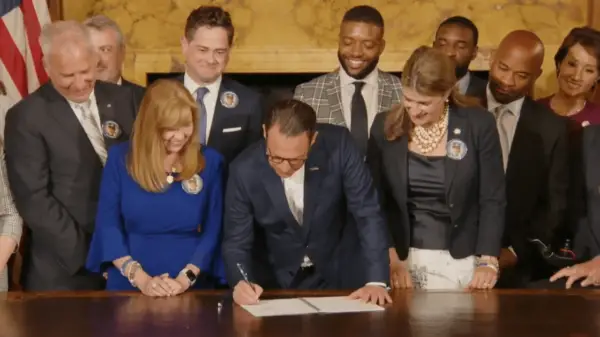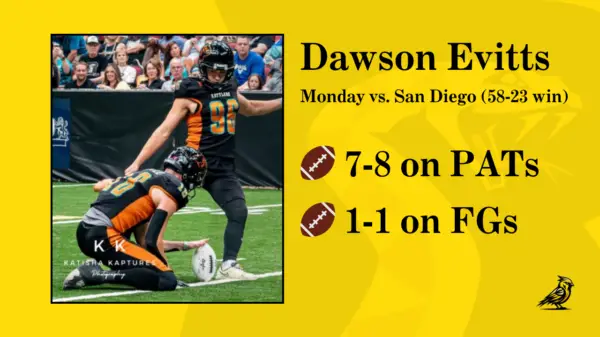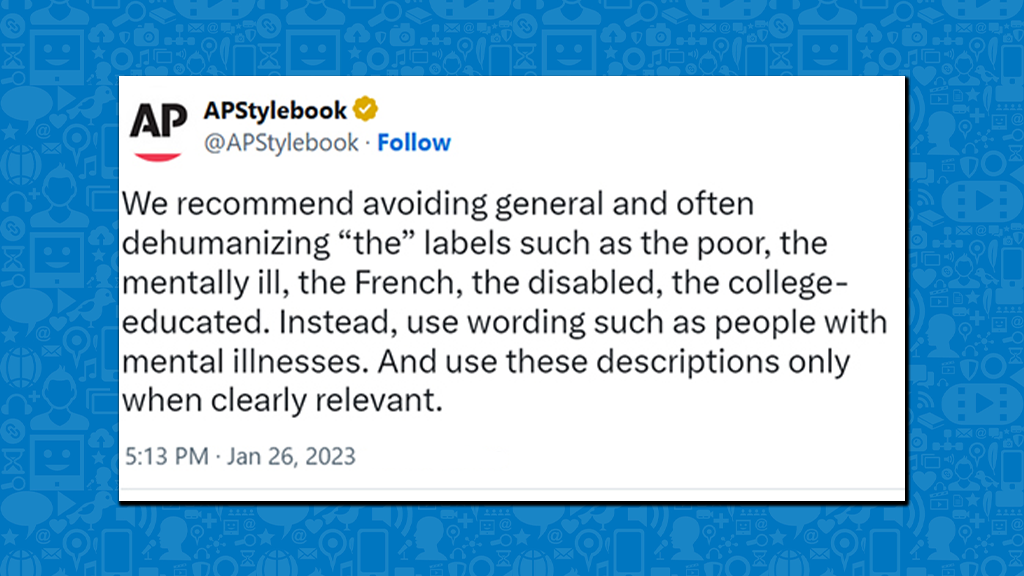The Associated Press says the word “the” is offensive and shouldn’t be used by news media.
In a recent tweet, the @APStylebook wrote the following:
“We recommend avoiding general and often dehumanizing “the” labels such as the poor, the mentally ill, the French, the disable, the college-educated. Instead, use wording such as people with mental illnesses. And use these descriptions only when clearly relevant.”
@APStylebook deleted tweet from Jan. 26, 2023
That’s right. AP finds use of the word “the” to be dehumanizing.
We, uh … we have no words. Except, maybe, What. The. Fudge!
Next time you’re at work or your business and you’re really putting in a full day and can’t wait to be done, just remember there are people in this world, like those with the AP, whose job it is to sit around, fritter time away, and come up with this baloney.
AP Says the Word “The” is Dehumanizing
Now, there were 2 initial reactions to this tweet from the general public.
The first was like ours. Many people were left wondering what actually goes on inside the minds of these people.
Wait, is saying “these people” offensive. We didn’t say “the people,” after all.
Who knows? Who cares?
The second reaction was also hilarious but focused in on the AP’s decision to use “the French” as an example to explain their nonsense.
What did the Fre … oops, What did French ever do to the Associ .. oops, again, What did French ever do to Associated Press?
Trying to learn rules here and not offend people or entire swaths of people.
But then, apparently, there was a reaction from … who knows, people who apparently believed what the AP was peddling initially and said, “OMG, I can’t believe you just dehumanized French people.”
No one took it that way but AP used that take to offer an apology, of sorts.
Do all apologies have lectures attached to them?
After deleting the initial tweet, @APStylebook posted a thread, “apologizing” for their mistake …
“We deleted an earlier tweet because of an inappropriate reference to French people. We did not intend to offend.
Writing French people, French citizens, etc., is good. But “the” terms for any people can sound dehumanizing and imply a monolith rather than diverse individuals.
Instead, use wording such as people with mental illnesses or wealthy people.Use these descriptions only when clearly relevant and that relevance is made clear in the story.
Be specific when possible and relevant, such as people with incomes below the poverty line.The Stylebook also recommends using a mix of identity-first language (homeless people) and person-first language (people who are homeless) if the preference of an individual or group can’t be determined.”
@AP Stylebook, Jan. 27, 2023
ALSO READ:
- AOC Questions The Strength Of Bootstraps, Calls Them A Joke
- Is Calling A Hamburger A “Hamburg” An Impeachable Offense?
- AOC Memes
Subscribe to Coal Region Canary
Get email updates from Coal Region Canary by becoming a subscriber today. Just enter your email address below to get started!Support Coal Region Canary
Like our reporting and want to support truly local news in Schuylkill County? Your small donations help. For as little as $5, your contribution will allow us to cover more news that directly affects you. Consider donating today by hitting the big yellow button below ...





















 Stanley P. Brozana Jr., 72 – Served 37 Years as Orwigsburg Police Chief
Stanley P. Brozana Jr., 72 – Served 37 Years as Orwigsburg Police Chief











